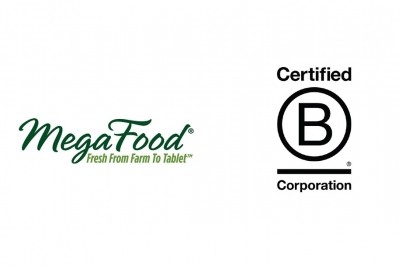Special edition: Botanicals
Trustworthiness of supply improves against backdrop of stubborn outliers

The quality and integrity of botanical ingredient supply was called into question in a big way by the initial investigation launched in 2015 by New York State Attorney General Eric Schneiderman. His initial foray called into question whether some botanical dietary supplements offered by several major retailers had much if any of the active herbs within the bottles. The methods his probe used—DNA testing on applied extracts—have since been discredited as not being fit for purpose, especially at that time.
There have been advancements both in the technology of so-called DNA barcoding and the understanding of how and when to apply it since then, but these were unavailable to Schneiderman. His investigation used more of a buckshot approach.
Whether probe was right, it was damaging
And the agreements he forged with the named companies, the pact with GNC foremost among them, saw the products in question go right back onto the shelves without modification. This left many in the industry to wonder what it was all about in the first place.
But the probe, which was widely reported in the mainstream press, was nevertheless a damaging episode for the reputation of the industry. Did the makers of botanical products really know what they were putting into their capsules? Did they care?
The issue has died down a great deal in the popular consciousness since then. The social media outrage attention span is short, and people prone to sharing this sort of thing on various platforms soon had national political events to distract them.
So rather than progressing to the level of Congressional hearings and possibly new, onerous legislation, the issue is back on the back burner. What have ingredient suppliers done with this breathing space?
Branded ingredient suppliers advancing quality message
For Stefan Gafner, PhD, chief science officer of the American Botanical Council, determining who is really addressing this issue has to do with making a judgement about how transparent a given supplier is being.
“Many manufacturers are talking about transparency, but the word seems to take on all kind of shapes and forms depending on who is talking about it. While there are manufacturers that have gone to great lengths to showcase their supply chain to consumers, others don’t, so more data on the origin of the ingredient and the manufacturing process would be welcome,” Gafner said.
Sabinsa Corporation, a global supplier of botanical ingredients, has tackled the transparency issue by the horns. As a supplier of branded ingredients, president Shaheen Majeed said transparency is part of the value proposition for these products. The main quality questions in botanical ingredient supply hover around trade in commodity level ingredients.
“Transparency is crucial for herbal products, particularly when mainstream media questions their legitimacy all too often. Ingredients purchased as commodities are the most risky, for obvious reasons. Branded materials from companies that invest in serious research and proprietary extracts want that information known, so transparency is part of their marketing efforts,” Majeed said.
Cal Bewicke, president of supplier Ethical Naturals, said the whole idea of transparency is in danger of spinning out of control, with suppliers using the word in so many different ways that it could become meaningless. For Bewicke the question purchasers of botanical materials should be asking is: nice talk. Now show me the data.
“Transparency is the new key word these days, but too often this means, ‘Here’s the name of the manufacturer, this is where the product comes from, so now you can trust the Certificate of Analysis’. To me, supply chain transparency can't equal the certainty of in-depth, batch-specific US testing for identity, potency, adulterant screening, and other key quality markers,” Bewicke said.
AHPA: There is plenty of legitimate supply
Holly Johnson, PhD, the new chief science officer of the American Herbal Products Association, has a unique perspective on the quality of herbal ingredients in that she spent several years at Alkemist Labs before joining AHPA. So she has seen what kinds of things are showing up as adulterants in the marketplace and has an idea of how prevalent these problems are. There are certain commoditized botanicals that have issues, but in general, Johnson believes the industry is stepping up to the quality plate in a big way.
Critics of the industry cite the global nature of the business and the risks that imposes (Who is supplying this stuff? How do you know who they are?). Johnson said that is not a recent development, and only comes as a surprise to those who are unfamiliar with the industry. Responsible companies have known how to deal with this for some time.
“It has always been a global marketplace. That’s nothing new. I mean, some of these ingredients only grow in the tropics,” she said.
“In my opinion adulteration represents a very small portion of the marketplace. If you want to find quality ingredients that are not adulterated, it is not at all difficult. There are plenty of good suppliers you can turn to,” Johnson said.
The benefits of vertical integration
Within the sphere of botanical ingredient supply, few firms are vertically integrated in the same way as are some other industries. In other words, except for a minority of brands, the finished goods manufacturer does not own the farms on which the ingredients are produced. But a number of high quality suppliers, such as Ethical Naturals, Sabinsa and BI Nutraceuticals to name just a few, have such tight and long standing relationships with farmers that it amounts to very much the same thing.
“The key as a supplier is to work with the growers, follow the process from harvest, to drying, to shipping of the botanicals to our BI facilities. We control our process form the raw material and do all of our own extraction and manufacturing. So we control the material from cradle to grave. Our biggest issue would be with other less scrupulous suppliers,” said Randall Kreienbrink, director of marketing for BI Nutraceuticals.
“Developing a cultivation program to source raw materials is unusual for an ingredients supplier, but we at the Sami–Sabinsa Group have found it so beneficial that we are expanding our efforts. Benefits include a sustainable supply of raw material, even when there is a lot of competition to buy certain herbs, and the ability to guide the farmers in growing high quality herbs,” Sabinsa’s Majeed said.
“There is great value in vertical integration as a supplier of botanical ingredients. Co-ownership, or close partnerships in the chain of ingredient development, raw material manufacturing and the packaging of finished product, allows for the development of uniform testing standards and analytical methods literally from field to finished product. This can lead to higher quality and better value for consumers,” said Bewicke of Ethical Naturals.
















